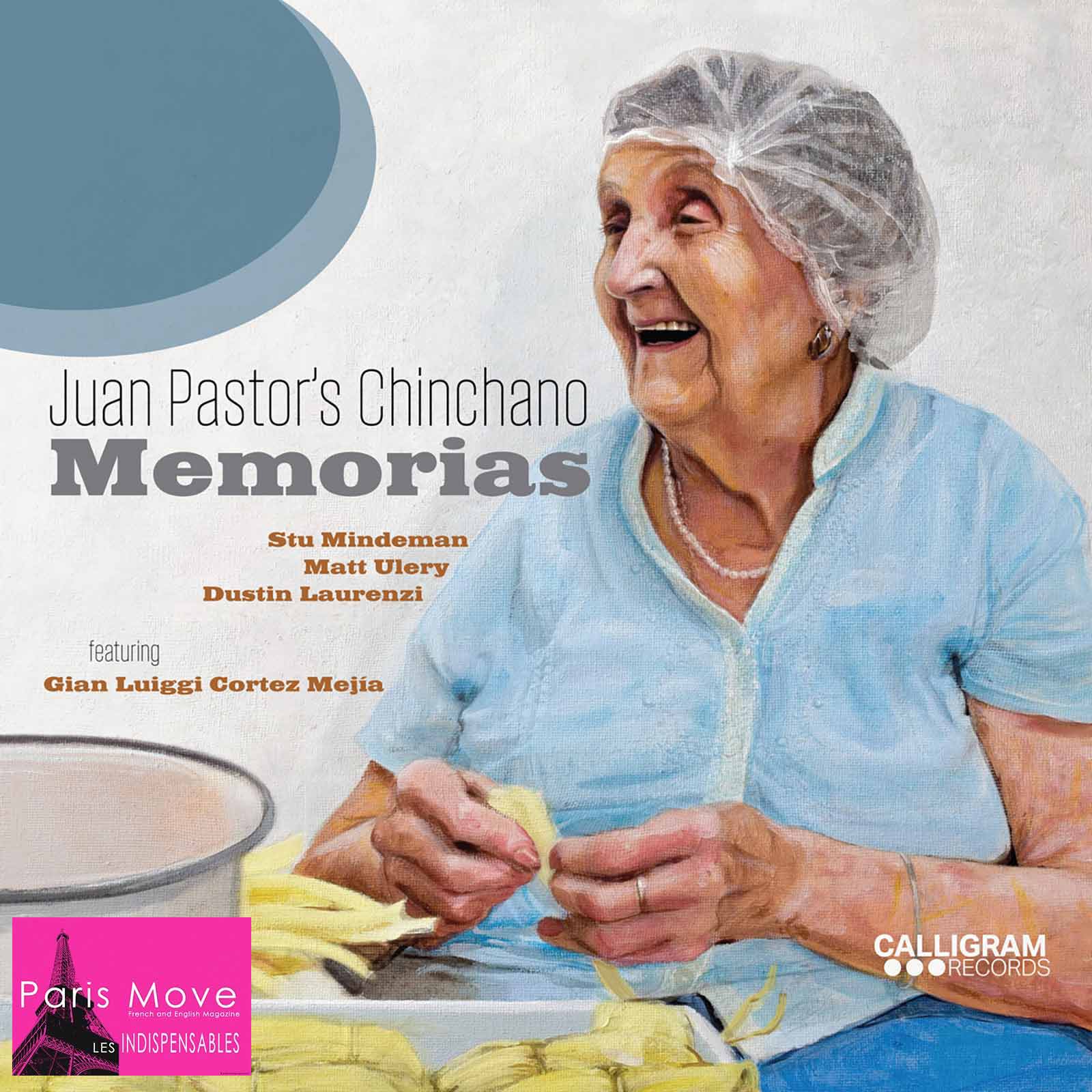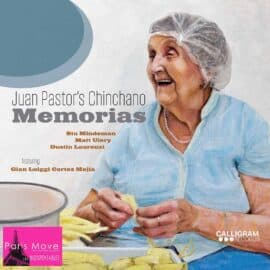| Latin Jazz |

Juan Pastor’s “Memorias”: A Life in Rhythm, Remembered.
Latin jazz is having a luminous season, and few artists embody its evolving story more compellingly than Juan Pastor. With his latest album, Memorias, the Peruvian-born percussionist, composer, and educator has created a recording that feels less like a studio project than a living testament, one in which memory, family, and cultural heritage intertwine seamlessly with the innovations of contemporary jazz.
Pastor’s journey begins in Lima, Peru, where he grew up steeped in the traditions of his country’s folkloric music. “From the beginning, rhythm was not just sound,” he recalls. “It was a way of telling history.” That history was made tangible under the tutelage of Eusebio Sirio “Pititi,” the legendary master of Afro-Peruvian percussion who taught him not just technique on instruments like the cajón and congas, but how those instruments carry the heartbeat of an entire culture. “Pititi showed me that every strike on the cajón is both a note and a story,” Pastor says.
Those stories are woven directly into Memorias. The album, he explains, is first and foremost a tribute to his grandmother, Celinda, now 95, whose presence has shaped his sense of family and identity. “This album is built around the idea that memories are not only something we revisit,” Pastor says. “They are part of our existence, shaping who we are and how we move forward.” It is that sensibility, intimate, poetic, yet never nostalgic, that gives Memorias its quiet power.
Pastor’s music has long been defined by this balance between intellect and emotion. His writing is highly visual, almost cinematic, drawing listeners into imagined landscapes built from rhythm and harmony.
His percussion playing, whether on drum kit or hand drums, is marked by delicacy rather than dominance; rhythm is not imposed but invited, integrated into the larger ensemble like an equal voice in conversation. As he puts it, “For me, music is always a whole. Rhythm, melody, harmony, they’re all reflections of the same thought.”
This philosophy has carried into one of his most ambitious projects: the formation of Chinchano in 2013. With this ensemble, Pastor has pioneered a sound that weds the entrancing pulse of Afro-Peruvian tradition to the harmonic complexity and improvisational openness of North American jazz. Over the course of four albums, Chinchano, Un Cambio, El Regreso, and Cachito, the group has earned a reputation for innovation, drawing praise for its ability to honor heritage while fearlessly embracing modernity. Critics have described Chinchano’s work as “a masterclass in fusion without compromise,” and audiences have responded with equal enthusiasm.
But Memorias feels different, more personal. Instead of presenting memory as something frozen in time, Pastor treats it as a living force, an engine of creativity. This approach has also shaped his collaborations. Over the years, he has worked with artists who themselves embody jazz’s borderless spirit: guitarist Fareed Haque, drummer-producer Makaya McCraven, trumpeter Marquis Hill, saxophonist Miguel Zenón, clarinetist Paquito de Rivera, harmonica virtuoso Howard Levy, and vocalist Kurt Elling, to name just a few. Each collaboration, Pastor notes, has reinforced his conviction that jazz is not a fixed style but an ever-evolving dialogue.
That dialogue has taken him to stages across the globe. He has performed at the North Sea Jazz Festival in the Netherlands, the Made in Chicago Jazz Festival in Poland, and the Lima Jazz Festival in his native Peru. In the United States, he has become a fixture of the Chicago scene, headlined the Chicago Latin Jazz Festival and appearing at the city’s crown jewel, the Pritzker Pavilion in Millennium Park. “Every audience brings its own energy,” he says. “In Chicago, I feel the openness to experiment. In Lima, there’s the emotional connection to my roots. At North Sea, it’s the thrill of being part of something international.”
What unites all of these moments is Pastor’s insistence that music must remain alive. Memorias is not about looking backward, but about carrying memory forward into the present tense. “I don’t want my music to sound like a museum,” he says. “I want it to breathe.” And breathe it does, sometimes softly, sometimes urgently, but always with a pulse that feels human and true.
For jazz listeners, Memorias offers multiple entry points. It can be absorbed as an intimate portrait of family and heritage, as a sophisticated exploration of rhythm and melody, or simply as music that invites reverie. Whether heard in the charged atmosphere of a concert hall or drifting through a backyard afternoon, the album speaks in a language at once personal and universal.
In a time when jazz continues to redefine itself for the 21st century, Juan Pastor has emerged as a voice both rooted and restless, honoring the soil from which he comes while stretching toward new horizons. With Memorias, he reminds us that the past is not gone, it is alive in every note, shaping who we are and who we may yet become.
Thierry De Clemensat
Member at Jazz Journalists Association
USA correspondent for Paris-Move and ABS magazine
Editor in chief – Bayou Blue Radio, Bayou Blue News
PARIS-MOVE, September 28th 2025
Follow PARIS-MOVE on X
::::::::::::::::::::::::
Musicians :
JUAN PASTOR: drums (1-6), cajón (2,4,7)
STU MINDEMAN: piano
MATT ULERY: bass
DUSTIN LAURENZI: tenor saxophone
GIAN LUIGGI CORTEZ MEJÍA: congas, cajón, bell, cajita
JOSÉ “PEPE” MANTERO: castanets (1)
Tracklisting:
1. Celinda 04:10
2. Entre el Humo
3. Memorias
4. Tonada de Luna Llena
5. Human Touch
6. Qué Frío
7. Descarga Galáctica
Tracks 1, 3, 6, 7 composed by Juan Pastor (Chinchano Music, BMI)
Track 2 composed by Stu Mindeman (BMI)
Track 4 composed by Simón Díaz (BMI), arranged by Stu Mindeman
Track 5 composed by Matt Ulery (Woolgathering Music, ASCAP)
Produced by Juan Pastor
Recorded on July 13-14, 2024 at Transient Sound, Chicago, IL
Recorded by Vijay Tellis-Nayak and Brennan Mitroika
Additional percussion overdubs at Cachito Studios, Chicago, IL, engineered by Juan Pastor
Castanets recorded at Estudio de Diego Rivera, engineered by Diego Rivera
Mixing & Mastering by Brian Schwab
Cover Painting by Antonio Bonicelli
Design and layout by Chad McCullough
Portrait photography by Kambua Chema
This recording was made possible with funding from the City of Chicago Department of Cultural Affairs and Special Events (DCASE)

